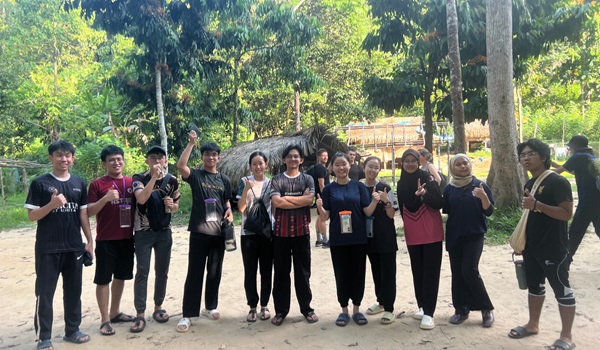
Ecotherapy or commonly known as nature therapy, is a a therapy that involves interactions between human and nature as a way to increase mental health and emotional well-being of an individual.
This method involves a variety of activities such as walking in the forest (also known as ‘mandi hutan’), hiking, observing the green scenery and the therapeutic sound of the river, enjoying the uniqueness in the biodiversity of flora and fauna or just spending time leisurely by camping in the forest.
Studies have been conducted on the benefits of ecotherapy particularly on mental illness, ecology and psychology. A notable early reference is a book by the Mind Health Association (MIND), “Ecotherapy: The green agenda for mental health” published in 2007.
Now, the ecotherapy approach has gained attention from researchers worldwide to cater to the mental health issues that are surging among youth, especially in university students.
Studies indicate that university students who often experience stress due to academic assignments can alleviate stress by spending time in nature. Nature interaction-based activities can enhance focus and boost positive emotions.
The ecotherapy benefits extend beyond mental health, encompassing physical well-being as well. Physical activities like hiking and walking in the forest are able to boost fitness level and cardiovascular health. A good physical health leads to an overall better mental well-being.
Studies also reveal that individuals who spend time in nature can simultaneously enhance their creativity and foster a sense of connection with nature and other people.
The multifaceted benefits of ecotherapy lead a group of university students from Kolej Kediaman Pertama at University Malaya (UM) to establish an ecotherapy-based club called ‘ASTAR Recreational and Education Club’ (ASTREC).
The establishment of this club provides a platform for students to engage in recreational activities and learn while incorporating the ecotherapy elements. ASTREC also aims to cultivate future leaders who value the environment.
Furthermore, by intertwining healthy lifestyle with environmental sustainability and community engagement, this will nurture holistic individuals who will be a champion in planetary health issues in the future.
Muhammad Sauqi Hassan
Univerisiti Malaya.
This article is translated from the original Malay article.



